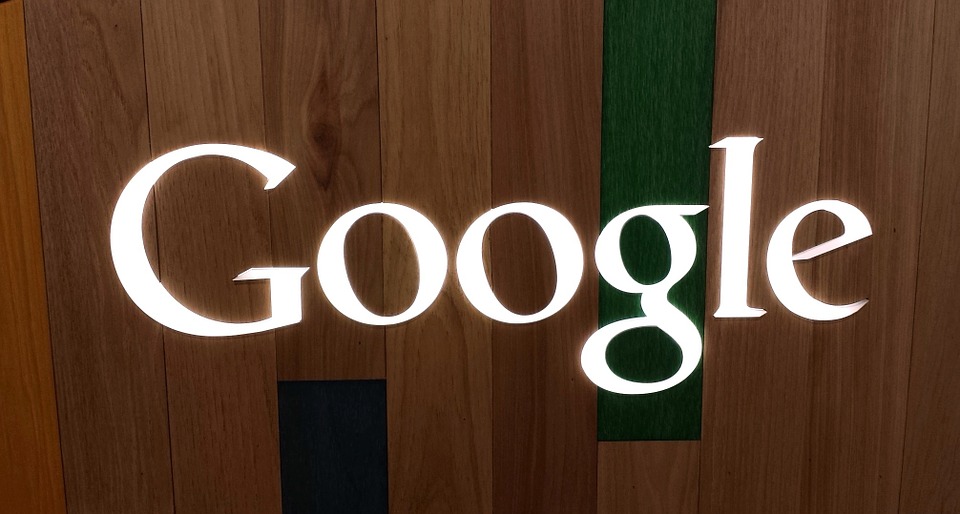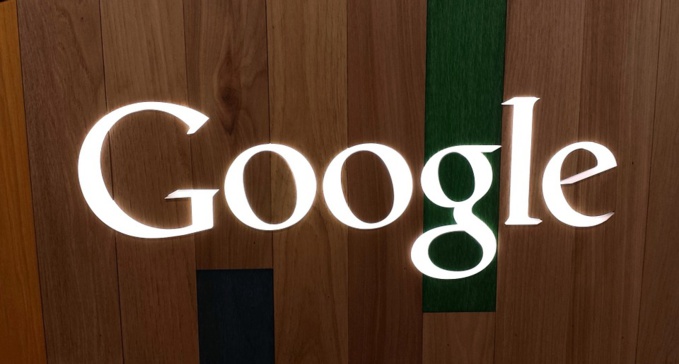War with Trump
In late August 2018, US President Donald Trump criticized Google, advising companies to "be more careful" from now on. It's about spreading disinformation on the platform, as well as juggling search results, in which Trump accused the company.
The American leader believes that Google deliberately shows only negative news about him, supporting liberal media and drowning out "right" publications.
"In other words, they rigged the results for me and the rest, so that almost all the news was bad," Trump said.
Google denied any political bias in its official statement. "Our goal is to make sure that users get the most relevant results in a split second," Google said in a statement. "We never falsify extradition to manipulate public opinion."
The same point of view is shared by many IT experts who argue that Google's algorithms are not sensitive to the political agenda.
Nevertheless, now Google is under the close attention of President Trump, which means that the company should be afraid of any sanctions against it. In addition, it is doubtful that Trump forgot how Google was accused of providing special support to Hillary Clinton during the presidential campaign in 2016.
Obligatory surveillance
In August, it became known about illegal surveillance of users controlled by Google services, for example, Google Maps. This story became scandalous thank to the fact that surveillance continues even after the smartphone’s owner has disabled this feature on his device.
Keeping daily logs on the movement of a person is a threat to privacy, and in addition, it can be used by law enforcement agencies to monitor those suspected of committing a crime.
After the Associated Press exclusive report on flagrant violation of the privacy right by Google, many industry experts, as well as politicians, called on the company to give users more control over their own information, and also proposed tightening up legislation in the field of personal data protection.
Google itself acknowledged that it does indeed store data about users, but does it solely to "improve user experience." After the case unfolded, the company made changes to the rules of using the "Location History". According to the new policy point, turning off the Location History function does not affect the geolocation in other services of the company, for example, in Google Maps.
Thus, the IT giant had no effect on the situation, but secured itself by changing the rules for using the function.
Glasses ahead of time
In 2013, the company started testing of Google Glass, which were supposed to bring augmented reality (AR) to the broad masses. Unfortunately, this ambitious project has remained one of the most disastrous in the history of the company.
There are several reasons for this fact. First, the public was presented with a shoddy prototype, since co-founder of Google Sergey Brin wanted to know about the community's reaction to the new gadget as soon as possible. After the bright and pathos presentation of Google Glass in the press there was a huge amount of negative feedback from the first beta testers of the device. Google Glass were overheating, their autonomy left much to be desired, and the appearance did not greatly suit the owners.
As a result, when Google Glass finally reached the consumers, they were not popular as bad reviews did their job. In addition, there is a version that Google Glasses appeared on the market before it was ready to introduce augmented reality into everyday life. To date, five years later, many manufacturers of smartphones and other equipment are engaged in development and implementation of AR in their products, but even now this technology is not mass and is not in demand.
Discrimination against white men
Last year, a major sexist scandal shook Google. The company's management decided to fire the software engineer James Damore, who sent a 10-page letter to his colleagues explaining unsuccessfulness of women in the field of IT by biological characteristics.
With his manifesto, Damore did not attempt to offend women or belittle their role in the industry, but wanted to clarify that not all differences between the sexes are the result of discriminatory treatment.
"We must stop perceiving the gender gap as a manifestation of sexism," the author of the letter said.
In addition, Damore said that attempts to bridge the gender gap create a corporate culture that infringes on the rights of men. According to him, women are offered leadership positions not because of their merits, but because they are a "minority."
Google did not understand the hidden motives of James Damore, seeing only a "sexist" component in his statement, and dismissed the engineer for violating corporate ethics. Now Damore is trying to sue his former employer, accusing Google of illegal dismissal.
Abuse of power
Google owns two anti-record penalties from the European Commission. In June 2017, the company was accused of abusing the position to promote its service with purchases. Allegedly, Google artificially dropped the sites of competitors in search results.
The European Union fined Google € 2.4 billion, which became the largest penalty in the history of the European Commission. A year later, this record was beaten - Google received a fine of € 4.3 billion for violation of antitrust laws.
The company was accused of using "anti-competitive practices" aimed at promoting the Android operating system, which already has a dominant position in the mobile operating system market. The company was given three months for correction, after which additional monetary sanctions could be expected.
In late August 2018, US President Donald Trump criticized Google, advising companies to "be more careful" from now on. It's about spreading disinformation on the platform, as well as juggling search results, in which Trump accused the company.
The American leader believes that Google deliberately shows only negative news about him, supporting liberal media and drowning out "right" publications.
"In other words, they rigged the results for me and the rest, so that almost all the news was bad," Trump said.
Google denied any political bias in its official statement. "Our goal is to make sure that users get the most relevant results in a split second," Google said in a statement. "We never falsify extradition to manipulate public opinion."
The same point of view is shared by many IT experts who argue that Google's algorithms are not sensitive to the political agenda.
Nevertheless, now Google is under the close attention of President Trump, which means that the company should be afraid of any sanctions against it. In addition, it is doubtful that Trump forgot how Google was accused of providing special support to Hillary Clinton during the presidential campaign in 2016.
Obligatory surveillance
In August, it became known about illegal surveillance of users controlled by Google services, for example, Google Maps. This story became scandalous thank to the fact that surveillance continues even after the smartphone’s owner has disabled this feature on his device.
Keeping daily logs on the movement of a person is a threat to privacy, and in addition, it can be used by law enforcement agencies to monitor those suspected of committing a crime.
After the Associated Press exclusive report on flagrant violation of the privacy right by Google, many industry experts, as well as politicians, called on the company to give users more control over their own information, and also proposed tightening up legislation in the field of personal data protection.
Google itself acknowledged that it does indeed store data about users, but does it solely to "improve user experience." After the case unfolded, the company made changes to the rules of using the "Location History". According to the new policy point, turning off the Location History function does not affect the geolocation in other services of the company, for example, in Google Maps.
Thus, the IT giant had no effect on the situation, but secured itself by changing the rules for using the function.
Glasses ahead of time
In 2013, the company started testing of Google Glass, which were supposed to bring augmented reality (AR) to the broad masses. Unfortunately, this ambitious project has remained one of the most disastrous in the history of the company.
There are several reasons for this fact. First, the public was presented with a shoddy prototype, since co-founder of Google Sergey Brin wanted to know about the community's reaction to the new gadget as soon as possible. After the bright and pathos presentation of Google Glass in the press there was a huge amount of negative feedback from the first beta testers of the device. Google Glass were overheating, their autonomy left much to be desired, and the appearance did not greatly suit the owners.
As a result, when Google Glass finally reached the consumers, they were not popular as bad reviews did their job. In addition, there is a version that Google Glasses appeared on the market before it was ready to introduce augmented reality into everyday life. To date, five years later, many manufacturers of smartphones and other equipment are engaged in development and implementation of AR in their products, but even now this technology is not mass and is not in demand.
Discrimination against white men
Last year, a major sexist scandal shook Google. The company's management decided to fire the software engineer James Damore, who sent a 10-page letter to his colleagues explaining unsuccessfulness of women in the field of IT by biological characteristics.
With his manifesto, Damore did not attempt to offend women or belittle their role in the industry, but wanted to clarify that not all differences between the sexes are the result of discriminatory treatment.
"We must stop perceiving the gender gap as a manifestation of sexism," the author of the letter said.
In addition, Damore said that attempts to bridge the gender gap create a corporate culture that infringes on the rights of men. According to him, women are offered leadership positions not because of their merits, but because they are a "minority."
Google did not understand the hidden motives of James Damore, seeing only a "sexist" component in his statement, and dismissed the engineer for violating corporate ethics. Now Damore is trying to sue his former employer, accusing Google of illegal dismissal.
Abuse of power
Google owns two anti-record penalties from the European Commission. In June 2017, the company was accused of abusing the position to promote its service with purchases. Allegedly, Google artificially dropped the sites of competitors in search results.
The European Union fined Google € 2.4 billion, which became the largest penalty in the history of the European Commission. A year later, this record was beaten - Google received a fine of € 4.3 billion for violation of antitrust laws.
The company was accused of using "anti-competitive practices" aimed at promoting the Android operating system, which already has a dominant position in the mobile operating system market. The company was given three months for correction, after which additional monetary sanctions could be expected.



















